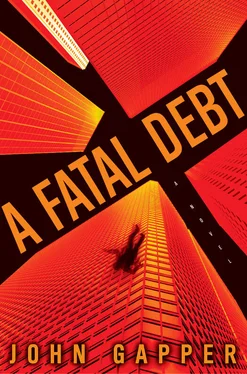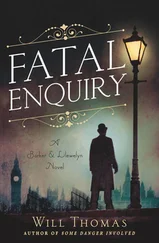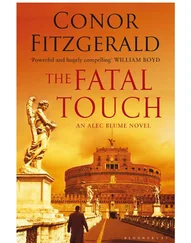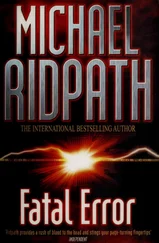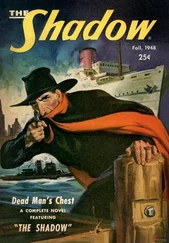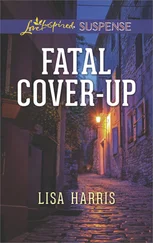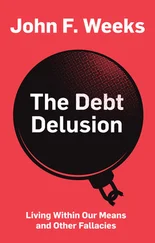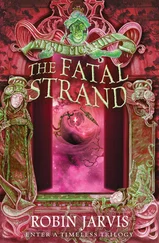John Gapper - A Fatal Debt
Здесь есть возможность читать онлайн «John Gapper - A Fatal Debt» весь текст электронной книги совершенно бесплатно (целиком полную версию без сокращений). В некоторых случаях можно слушать аудио, скачать через торрент в формате fb2 и присутствует краткое содержание. Жанр: Триллер, на английском языке. Описание произведения, (предисловие) а так же отзывы посетителей доступны на портале библиотеки ЛибКат.
- Название:A Fatal Debt
- Автор:
- Жанр:
- Год:неизвестен
- ISBN:нет данных
- Рейтинг книги:4 / 5. Голосов: 1
-
Избранное:Добавить в избранное
- Отзывы:
-
Ваша оценка:
- 80
- 1
- 2
- 3
- 4
- 5
A Fatal Debt: краткое содержание, описание и аннотация
Предлагаем к чтению аннотацию, описание, краткое содержание или предисловие (зависит от того, что написал сам автор книги «A Fatal Debt»). Если вы не нашли необходимую информацию о книге — напишите в комментариях, мы постараемся отыскать её.
A Fatal Debt — читать онлайн бесплатно полную книгу (весь текст) целиком
Ниже представлен текст книги, разбитый по страницам. Система сохранения места последней прочитанной страницы, позволяет с удобством читать онлайн бесплатно книгу «A Fatal Debt», без необходимости каждый раз заново искать на чём Вы остановились. Поставьте закладку, и сможете в любой момент перейти на страницу, на которой закончили чтение.
Интервал:
Закладка:
I went downstairs to the electronic center and located a free terminal. The first place I looked was the Rosenthal amp; Co. site, looking back at its past annual reports for a biography of Henderson. There was his meteoric career at Rosenthal, joining the bank in New York in the 1970s, rising to run its fixed-income division and then becoming chief executive. Along the way, one foreign job: chairman of Rosenthal International, 1990 to 1994. Henderson had been Greene’s boss in London at the same time that Harry had been posted there by Seligman. The City of London’s a small place , I thought. Even more of a club than Wall Street . It looked as though they had all been there for the same purpose-to prove themselves overseas before returning to New York in glory.
I started reading old copies of Euromoney for anything that linked them further. It was like the Vanity Fair of the City of London, with admiring interviews with bankers in odd corners of financial markets, adorned with heroic photos. As I read about the 1990 property crash, some of the material became familiar. Euromoney ’s idols had been the vulture funds that had picked through the wreckage of the banks’ lending mistakes. I’d been a teenager then, and the only crash I’d noticed was my parents’ divorce. But even I could observe, in the tale of burst bubbles and real estate blunders, that history had repeated itself.
I found two articles in which Greene was quoted-one a description of the Canary Wharf bankruptcy in which Rosenthal was involved along with almost every other bank I’d heard of. Later on, things got more cheerful, with talk of recovery and the writing back of Latin American debt. There was some excitement about the new credit derivatives market in London.
I soon got bored and flicked through photos of bankers dressed in black ties to receive prizes at risible award ceremonies-Bank of the Year, Asset-Backed Issue of the Year. I saw the younger Henderson, shaking a hand or standing in a group of bankers, wearing his smug smile, his hair a mottled gray. As I flicked through the pages, I came across a photo of another prize awarded to Rosenthal and Seligman jointly. On the left were Henderson and Greene and their people, and on the right was the Seligman crew, led by Harry. Harry looked like another man, not just in age but also in his beaming pleasure-you could tell that this silly award had meant a lot to him.
And nearby, Harry, by Henderson’s shoulder, dark-haired and youthful yet unmistakable, stood Felix.
Even now, as I look back at the mistakes I made-the way I had misunderstood Harry when he’d first come to the ER, the way I’d slipped easily into the world of wealth-the thing I’ll always regret is what I did next. Primum non nocere , we were taught in medical school: First, do no harm. Even in psychiatry, where nothing is so obviously mistaken as a surgeon cutting out the wrong body part or leaving a patient bleeding, some things are dangerous.
The worst is to push a patient past his limits, confront him with something so painful that he can’t cope. I don’t know if it made a difference-maybe the events were rolling inexorably toward their end. If it had all happened without me, though, I wouldn’t blame myself. I should examine my motives, but I’ve done it many times and I’ve come up short.
Every job has rules-barriers stopping abuse or even an appearance of it. They become wired into you, so you don’t have to think when you get close to the border. You hold back like a dog with an electric collar that gives it a shock if it passes across a buried wire. I’ve seen them standing there, barking wildly yet constrained from pursuit. I think of myself having crossed that border anyway, unable to hold back, only to find out what happens when you transgress. I’m more circumspect now-careful not to go past the line or even to approach it. I stay at a safe distance, warning those who pass me by but staying inside the wire. If we’d all stuck inside our limits, I’d still be a psych at Episcopal and Harry would still be a rich guy with his name on a plaque.
When I called, Felix picked up almost immediately, as if he’d expected it, and made no protest. If I’d thought more, I’d have realized that was a sign in itself. I told Felix about the people I’d met and what I’d discovered, and he listened silently.
“What are you doing later?” was all he asked.
Felix’s apartment was on Riverside Drive at the end of a street in the nineties that sloped down from West End Avenue. It ended on a quiet spot along the drive above the Hudson, illuminated when I arrived by a full moon. That moon picked out the buildings in New Jersey and a tanker riding low in the river, leaving a glittering wake. The night was quiet apart from the moan of cars and roar of trucks on the parkway. I gazed down at Riverside Park for a while, taking in the view and wondering if I should head back home. Having come so far, I was frightened by the prospect of at last finding out what had been hidden within Seligman-not just the financial deceptions, but also the broken relationships.
Then I saw Felix. He was standing a hundred yards away, his hands in the pockets. He hadn’t seen me and I walked toward him, waiting for him to look up, but I was within three yards before he showed any sign of noticing. At the last minute, he looked at me and nodded in acknowledgment.
“Shall we go inside?” he said quietly.
We walked across to his building, passing a Latino deliveryman wobbling the wrong way up the drive on a bicycle with no lights. It was the first time I’d known Felix to be quiet, and it felt alien, as if he’d had a stroke and lost the use of his larynx. He still hadn’t spoken by the time we got to his apartment, which was decorated in an ornate, gloomy way, with heavy curtains and furniture. He went into the kitchen and took a whiskey bottle from a cupboard.
“Single malt?” he said joylessly, as if it were medicine.
After he’d sloshed out two measures, he led me to his living room, where he lounged in an armchair with a knee across one of the arms. With his sweater riding up above his pants, he looked thinner than when I’d last seen him in my apartment. I wondered if he’d been eating properly or if drink had become his diet. I remember worrying briefly for him. I’d seen too many people dose their anxieties with drink, and it only made them worse. But I had always imagined Felix as so capable, so good at navigating a world of powerful people, that I wasn’t as concerned as I should have been. I didn’t think of him as in need of help: I’d relied upon him to help me. He raised his glass and the ice tinkled.
“Faithful servants,” he toasted.
“Your family’s away?”
“Yes, the wife decided to extend her stay there, put the kids in school for a while. It’s for the best, I’d say.”
He looked down at his glass, the rims of his eyes red, trying halfheartedly to make his life’s disintegration sound like a strategy.
“I saw a photo of you together in London-Harry, Marcus, Tom Henderson,” I said. “You worked at Rosenthal. You never told me that.”
“I didn’t realize you wanted my CV. Next time I’ll know.” He smiled flatly. “I guess Harry underestimated you. Unusual methods for a doctor, I’ve got to say.”
“What is it about Rosenthal, Felix? Why is everyone so obsessed with the place?” I said. “Henderson seems to love it.”
He smiled. “It’s hard to describe. So much of Wall Street is dog-eat-dog. We looked out for each other. If someone got in our way we were brutal, but there was camaraderie to it. We didn’t think we were the best. We knew it. Once you’ve been there you’re always part of it. I guess I’ve worked at Seligman twenty years now. If you cut me open, it would still say Rosenthal inside.”
Читать дальшеИнтервал:
Закладка:
Похожие книги на «A Fatal Debt»
Представляем Вашему вниманию похожие книги на «A Fatal Debt» списком для выбора. Мы отобрали схожую по названию и смыслу литературу в надежде предоставить читателям больше вариантов отыскать новые, интересные, ещё непрочитанные произведения.
Обсуждение, отзывы о книге «A Fatal Debt» и просто собственные мнения читателей. Оставьте ваши комментарии, напишите, что Вы думаете о произведении, его смысле или главных героях. Укажите что конкретно понравилось, а что нет, и почему Вы так считаете.
